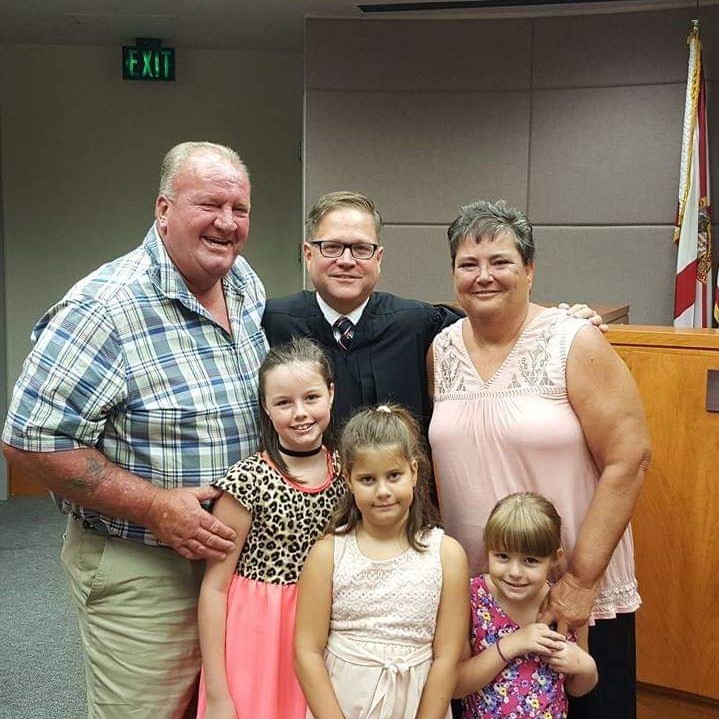If you are a grandparent, aunt, uncle, or sibling who wants to adopt a family member in Florida, you already know that this can be done through a relative or kinship adoption under Florida statutes chapter 63.
This type of adoption is a quicker and less expensive process compared to regular adoptions. While similar to a stepparent adoption, different forms are used. Relative adoption forms cannot be found online and are not available through the clerk of court.
Can I adopt and grandchild or relative without an attorney?
Yes, in most cases, with the proper knowledge and support, a pro se (self-represented) party can successfully conclude a relative or kinship adoption in Florida without a lawyer.
However, family adoptions that seem easy and straight-forward can often become complicated and messy. The most complicated relative adoption is when one or both of the biological parents refuse to sign a consent for adoption.
First Things to Consider
Before beginning a pro se (self-represented) adoption journey, the child(ren) to be adopted must already be living with you. This is called “physical custody” as opposed to “legal custody” which is something that a judge orders.
The next thing to consider is whether you can obtain the consent of one or both of the biological parents. A relative adoption can conclude in just a few months with properly signed adoption consents from the parents. Without one or both consents, you are in a position where you will have to prove abandonment to the court.
Parental consent may not be required in a grandparent or relative adoption, because Florida law generally allows courts to terminate parental rights without consent when the parents abandon their child emotionally or financially. However, showing abandonment can be a challenge, and Florida law generally protects a parent’s right to raise their child.
So, if you’re planning on adopting your grandchild because you don’t like the way their parents cut their sandwiches, that’s not a good enough reason.
What is abandonment?
Abandonment can be defined as the intentional or unintentional act of a parent failing to provide reasonable support, contact, or communication with their child.
To establish abandonment, the petitioner must prove that the biological parent(s) has willfully failed to communicate with the child, without just cause or excuse, for a significant period of time prior to the filing of the petition for adoption.
Do the parents send birthday cards or gifts? Do the parents call to speak with the children? If you are planning to make a case for abandonment, start a journal and keep it current.
How can abandonment be proven?
Proving abandonment can be a challenging or straightforward process depending on the specific details of your case. However, it is essential to note that it can be an emotional journey, and it’s vital to seek assistance and encouragement throughout the process.
There are several ways to prove abandonment in Florida. The court will look at the totality of the circumstances involving the non-consenting parent(s), such as:
Lack of communication: The petitioner can show that the biological parent has not had any communication with the child for an extended period of time, and that this lack of communication was willful and without just cause or excuse.
Lack of financial support: The petitioner can demonstrate that the biological parent has not provided any financial support and that this lack of support was willful and without just cause or excuse.
No effort on the father’s part to embrace paternity: There is a procedure in Florida for an unwed father to petition the court for a determination of paternity and for other related relief. Has the biological father done this? Has the biological father registered with the Florida Putative Father Registry?
Lack of physical presence: The petitioner can establish abandonment if the biological parent has not had any physical contact with the child for an extended period, and that this lack of contact was willful and without just cause or excuse.
Lack of interest: The petitioner can show that the biological parent has not shown any interest in the child for an extended period, and that this lack of interest was willful and without just cause or excuse.
Incarceration: If the parent(s) of a child has been or will be incarcerated for the majority of the child’s minority, this can be abandonment.
It should encourage you to know that Florida Statutes Chapter 63, the private adoption law, is distinct from Chapter 39, which is where the Department of Children and Families operates with their case plans.
Chapter 63 concentrates on terminating parental rights and making decisions based on the best interests of the child in the present, unlike Chapter 39. The court will assess the parent’s previous behavior rather than what they could improve in the future.
You can always add an attorney if needed.
Based on our extensive experience assisting numerous families with private relative adoptions, we have observed that most families are able to navigate the challenges of proving abandonment successfully. However, there may be situations where it is in the best interest of the petitioners to seek legal representation, particularly when presenting an abandonment argument in court.
In cases where parental rights are being terminated, the parent(s) have the right to request a court-appointed attorney, and the judge must grant the request. Even if the parent(s) have no viable argument, the appointed attorney is obligated to advocate for their side. In such circumstances, it may be wise to hire your own attorney for the hearing.
Conclusion
To sum up, grandparent and relative kinship adoptions are prevalent in Florida, and it’s crucial for every child to have caring parents. The process of kinship adoption by a relative involves several steps, such as filing a petition, scheduling a court hearing with a judge’s office, and updating the child’s birth certificate to reflect the adopting relatives after the hearing.
At Florida Family Adoptions, we specialize in nonlawyer preparation of adoption documents and offer administrative and procedural support until your adoption is finalized. Our website contains valuable information on this topic, and we encourage you to explore it further.
We are always available during business hours to answer your emails or take your calls.


Comments are closed.